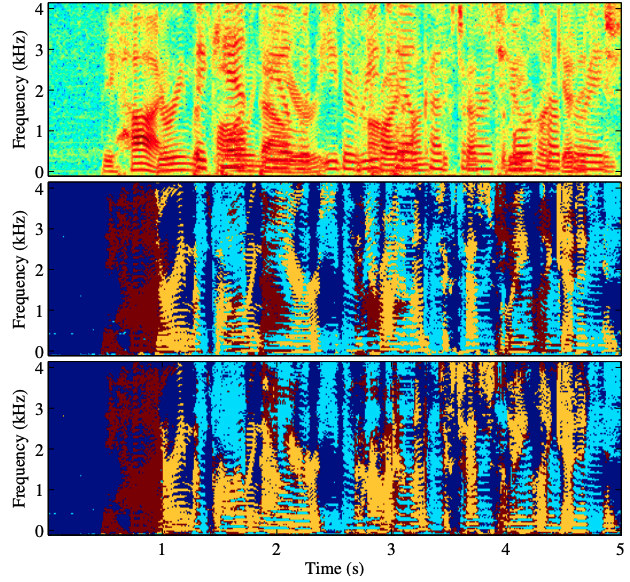Divide and Conquer: A Deep CASA Approach to Talker-independent Monaural Speaker Separation
We address talker-independent monaural speaker separation from the perspectives of deep learning and computational auditory scene analysis (CASA). Specifically, we decompose the multi-speaker separation task into the stages of simultaneous grouping and sequential grouping. Simultaneous grouping is first performed in each time frame by separating the spectra of different speakers with a permutation-invariantly trained neural network. In the second stage, the frame-level separated spectra are sequentially grouped to different speakers by a clustering network. The proposed deep CASA approach optimizes frame-level separation and speaker tracking in turn, and produces excellent results for both objectives. Experimental results on the benchmark WSJ0-2mix database show that the new approach achieves the state-of-the-art results with a modest model size.
PDF Abstract




 WSJ0-2mix
WSJ0-2mix
